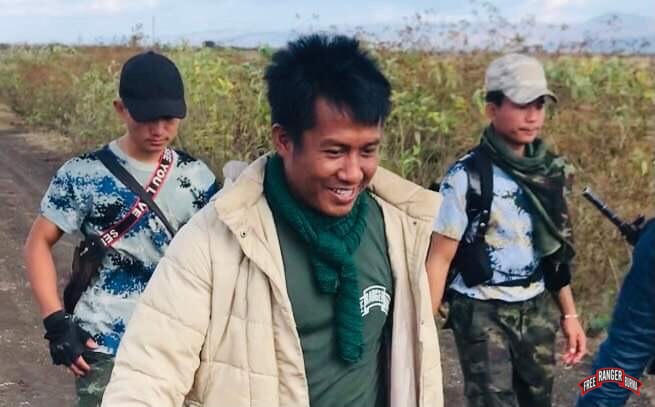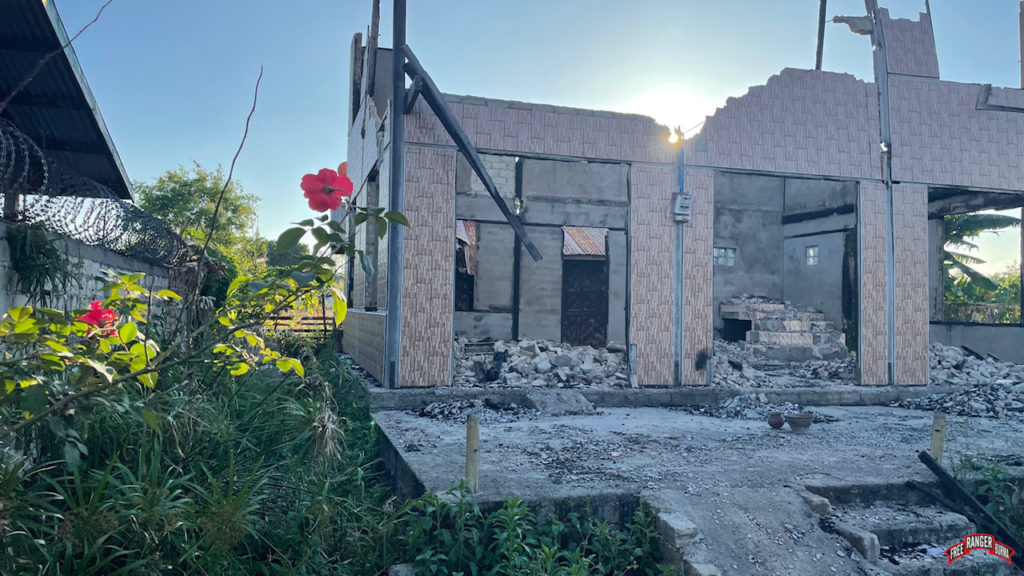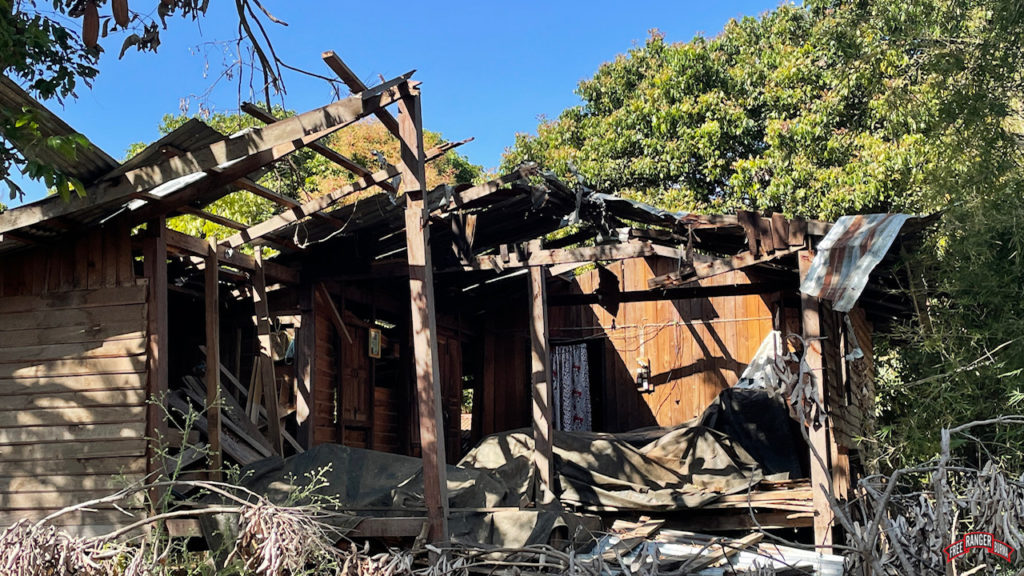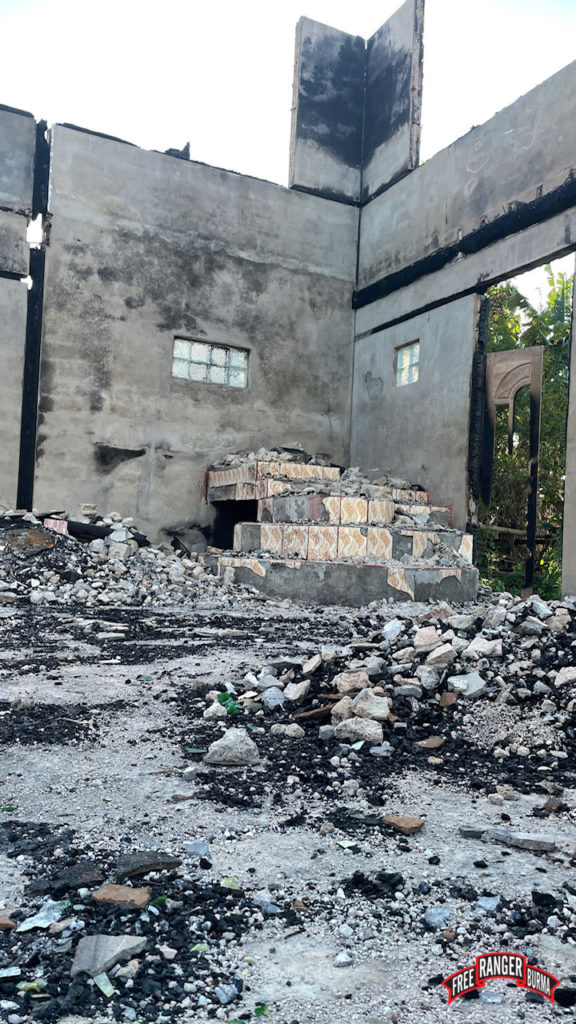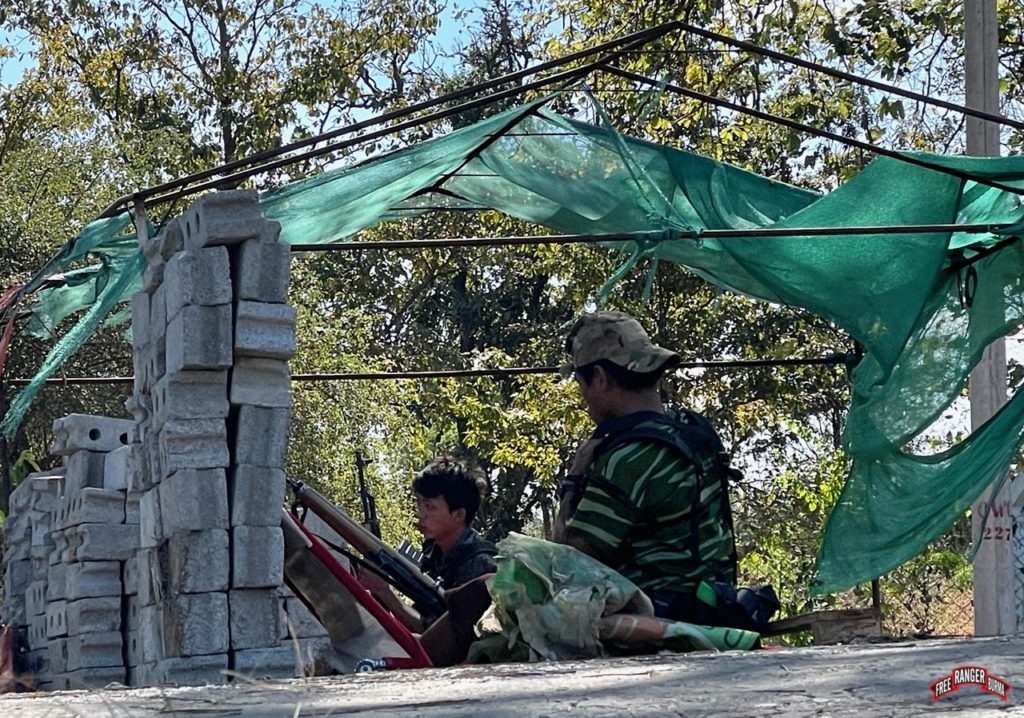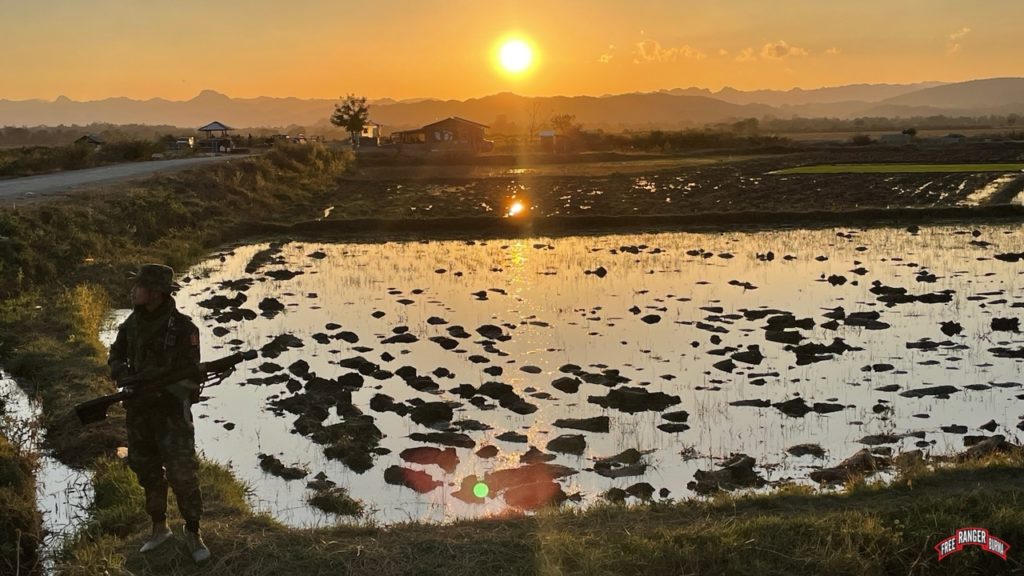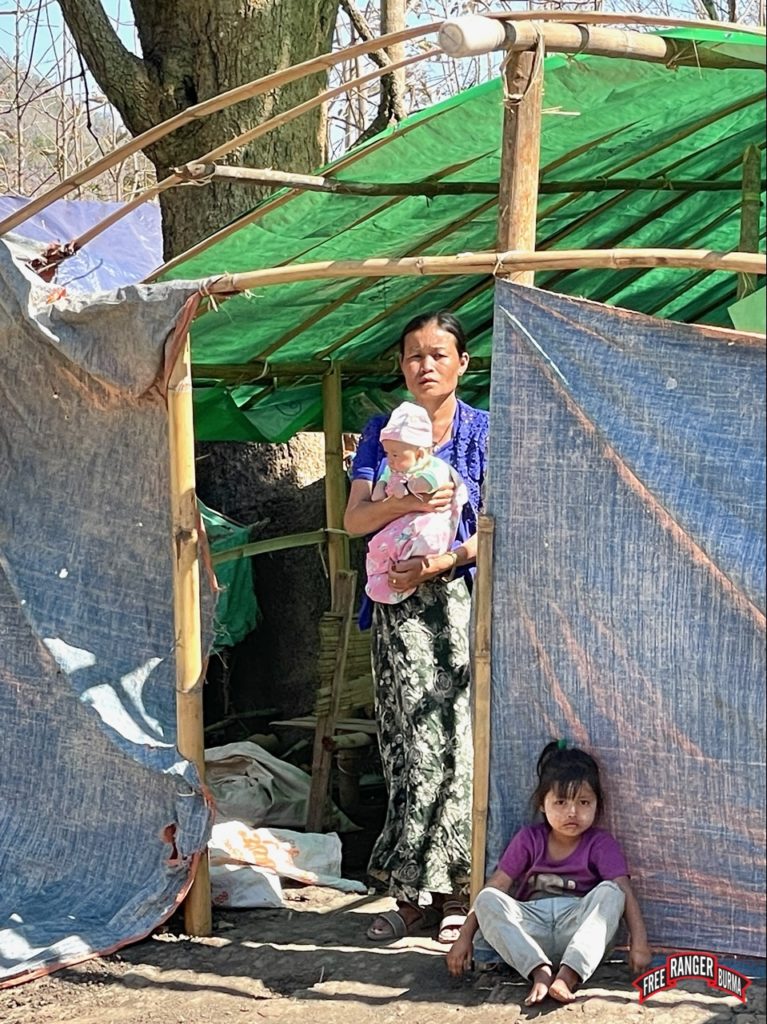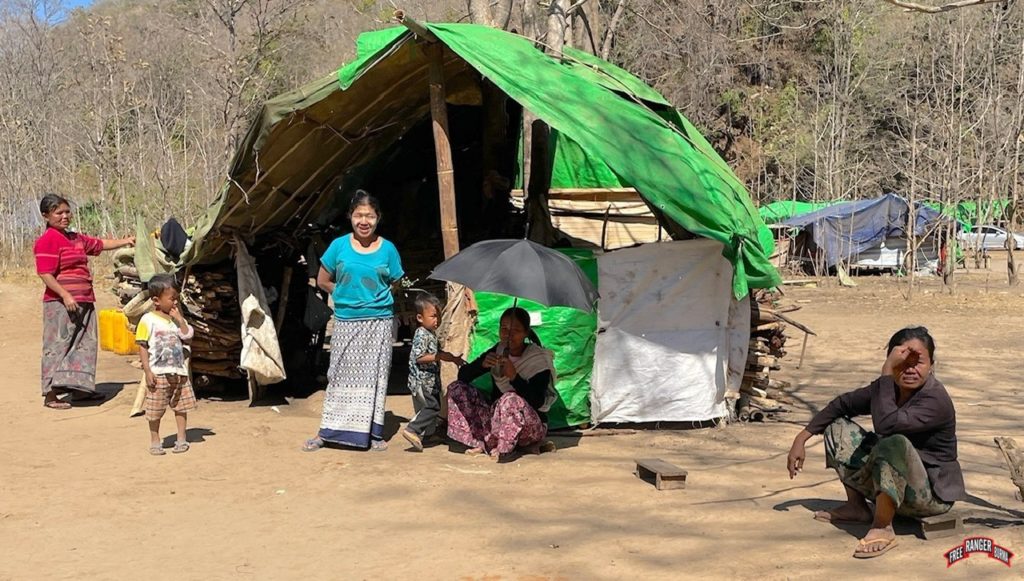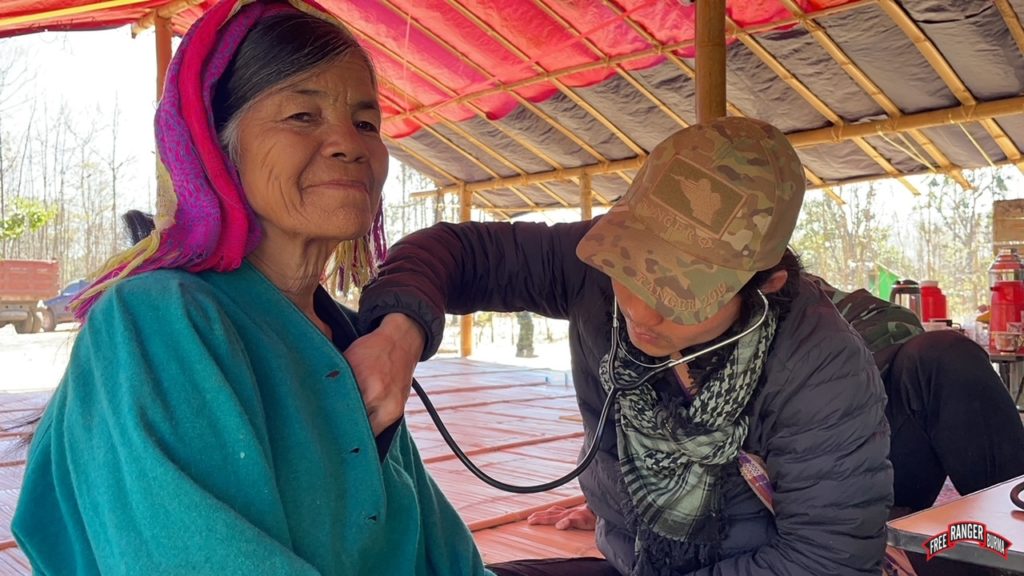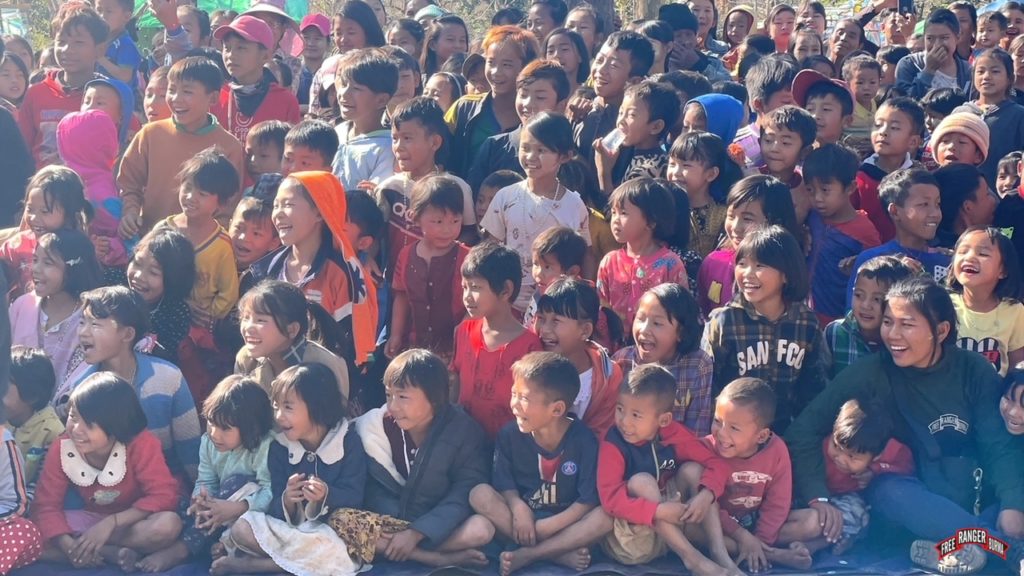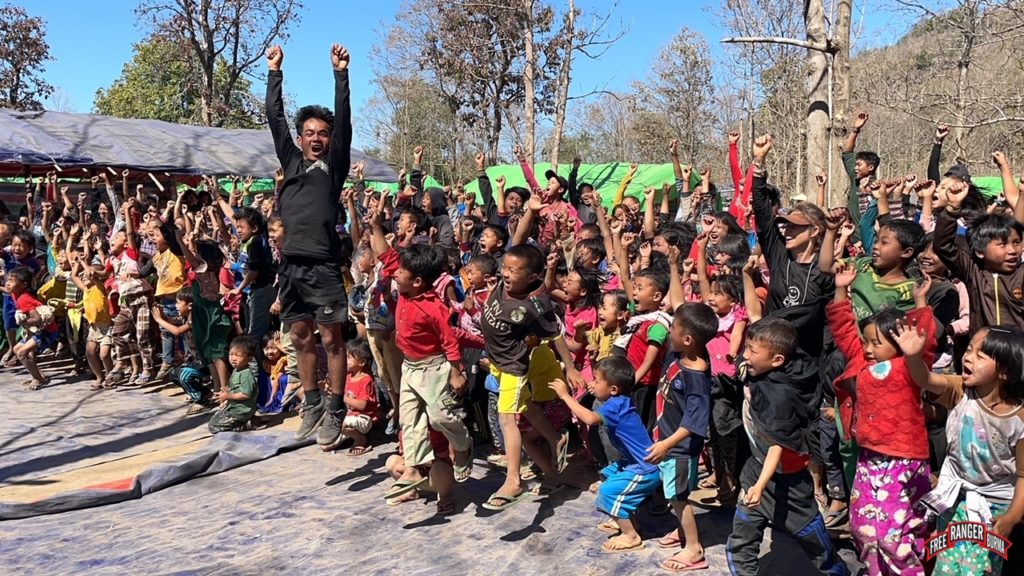A Popular Uprising in Karenni State, Burma
18 February 2022
Karenni State, Burma
Ghost towns and empty villages are spread across Karenni State now, as 170,000 villagers have fled from Burma Army attacks. We are in Karenni now, with over 170,000 displaced people, and there is fighting every day. In addition to ground attacks supported by 60, 81, and 120mm mortars and rockets, the Burma military also uses Russian Hind-type attack helicopters, from which they fire rockets and machine guns, and jet fighters that bomb the Karenni.
Last week two Mi-8 type helicopters — one of them carrying General Soe Win, the second-ranking member of the dictatorship — came into Loikaw escorted by a fighter plane. They departed in the late afternoon. The Burma military has been reinforced and is increasing its shelling all around the Loikaw-Demoso area. Here we are doing medical programs, children’s programs for the IDPs, and giving medical care to the local resistance at the front. Today, as we were preparing to support, we responded to two different attacks and treated a grandfather, his granddaughter, and a young volunteer at the front, all of whom had been severely wounded by mortars and landmines. in Karenni State, the resistance is comprised of over 1,000 Karenni Army regulars (which belong to the Karenni National Progressive Party or KNPP)and 6,000 new volunteers in People’s Defense Force (PDF) groups. One of the PDF battalions we were with had 400 members and 35 rifles, which is typical. There are over 25 volunteer battalions in this area;18 of these battalions are under the Karenni Army and organized as the Karenni National Defense Force (KNDF) and others report to the National Unity Government (NUG) and represent the major Karenni towns (Loikaw, Demoso, Hpruso, Bawlake, Pasawng, Shadow and Pekon, just across the border in Shan State ). These are aligned with the NUG and coordinate closely with the Karenni Army and KNDF. All of these battalions are highly motivated but very under-armed. Young people across Karenni State have fled from universities and jobs and are now standing in as IDP camp leaders, PDF commanders, and relief workers.
Free Burma Ranger teams in Karenni State have been responding to the increased attacks of the Burma Army since the coup of 1 February 2021, helping families flee, providing medical care, and sharing hope through Good Life Club programs. Thank you for praying for the Karenni people and for hearts to change within the regime, in Jesus’ name.
A story from the field:
Hope in Painted Clouds:
A Servant-Leader on the Karenni Front
It’s warmer this morning, perhaps because of the rain last night. Light bleeds across the sky, painting its cloud towers in preternatural hues.
A voice blends with the stillness of the early morning hours: “The clouds, they are like the zoo. You can see any animal you wish in them.” Strange words to hear from a battalion commander on any battlefield, but fitting coming from the man standing next to me.
Albert is not like most military commanders. In fact, before the coup, he wasn’t one. At first glance, you might pass him by, but more than a cursory observation reveals that there is something special about this man. You cannot help but be charmed by his ever-ready smile, gentle demeanor, and humility.
Born to a farming family in a village nestled at the base of the mountains west of Loi Kaw, Karenni State, Albert soon realized his passions lay elsewhere. Like many young men and women seeking their calling, he left home. His professional pursuits included priestly studies with the local Roman Catholic Church, a supermarket employee in Singapore, a 7-11 clerk in Dubai and a Migration Education and Trafficking Awareness educator with an International Non-government Organization (NGO) based in Yangon.
He found satisfaction working in the NGO world but, with the advent of the coup, he answered the call to defend his homeland and returned to his village. Once there, he was commissioned as battalion commander within the Karenni National Defense Forces (KNDF).
You quickly learn that his desires are secondary to those of duty and the needs of his men. One desire, the well-being of his men, goes beyond their tactical readiness. He encourages them to pick up trash around their positions by first doing it himself. “You cannot expect them to do, if you will not…” he says and goes on to state matter-of-factly that it is important for not only the environment but our own well-being to keep our area clean.
He is accused of being too soft by his peers, but the symptoms of weak leadership are not noticeable in his command. His soldiers obey his orders quickly and show him respect. His leadership style appears that of a wise older brother amongst his younger siblings: loving, but stern.
“The other night the soldiers [stationed in the forward observation post] said they wanted to come back because of the rain and they were very cold. But I told them, ‘no, it is your duty, you have to stay.’” He said this while cooking breakfast with the same soldiers recently returned from their forward position. They were wet and tired but in good spirits.
He has concerns regarding the outcome of this conflict. He says regretfully, “The villagers provide us with food, but we do not like being a burden to them.” But then he continues with a smile, “We do not have enough guns or ammunition and we do not have training like the Burma Army. But we have heart and we will fight to the end.” He went on to say, “90 percent of villagers are behind us. They’ve told us even if our homes are burned, don’t give up.” He says to me, “The Bible says to focus on today; tomorrow has enough problems of its own,” then adds, “but it is hard not to worry.” So his hope remains, and stands the test of sniper fire, mortar attacks, and possible invasion at any moment. That hope is instilled in his soldiers. They man improvised fighting positions, standing between overwhelming military might and their families.
Amidst the continual threat of overwhelming military power, a small band of civilian volunteers stand their ground. And as David prevailed against Goliath, there is hope.
God bless you,
Free Burma Rangers
